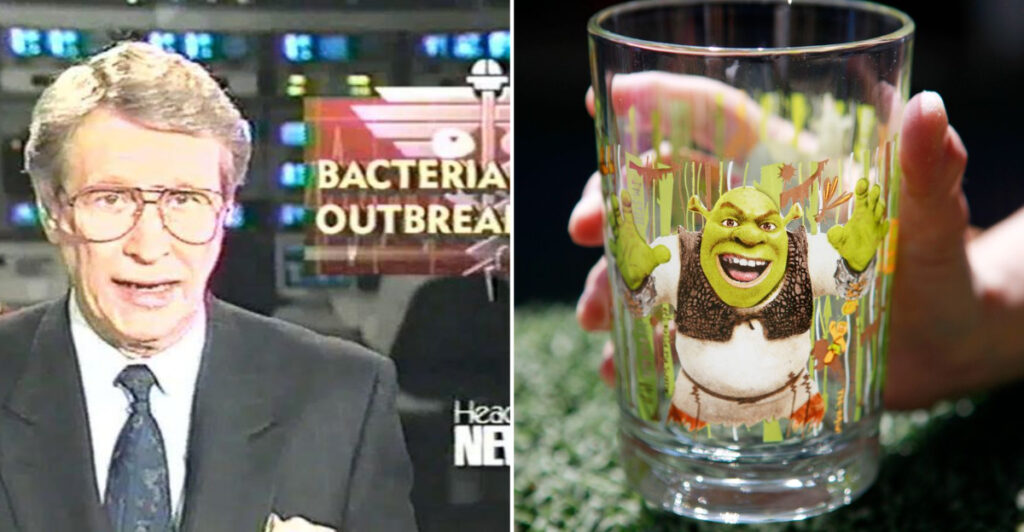Fast food has become a staple in American culture, but not all fast-food items make the cut for consumer safety and satisfaction. Over the years, several fast food products have sparked significant controversy, leading to bans, recalls, or public outrage. This blog post explores 20 notorious fast-food items that have either been banned, recalled, or stirred public outrage across the United States.
1. McDonald’s Slivered Yellow Onions on Quarter Pounders
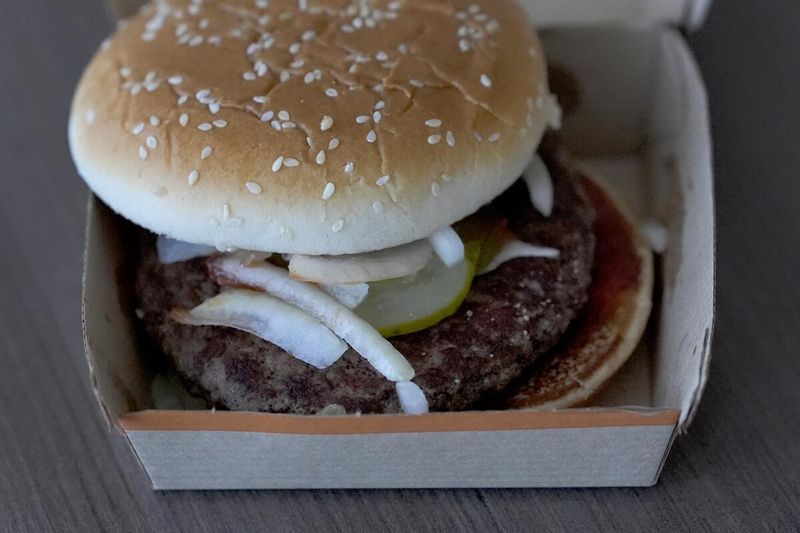
A seemingly harmless topping, McDonald’s slivered yellow onions on Quarter Pounders, became infamous in October 2024. These onions were linked to a severe E. coli O157:H7 outbreak, affecting 104 individuals across 14 states. The outbreak resulted in 34 hospitalizations and one tragic death. In response, McDonald’s swiftly removed the onions from their menu and issued a recall on the supplier’s product.
The crisis was closely monitored, and by December 2024, the outbreak was officially declared over. The incident highlighted the critical importance of stringent safety protocols in food supply chains.
McDonald’s commitment to consumer safety was put to the test during this period, as they worked tirelessly to restore public trust. This experience served as a stark reminder of the potential hazards lurking in seemingly innocuous ingredients.
2. McDonald’s Packaged Apple Slices
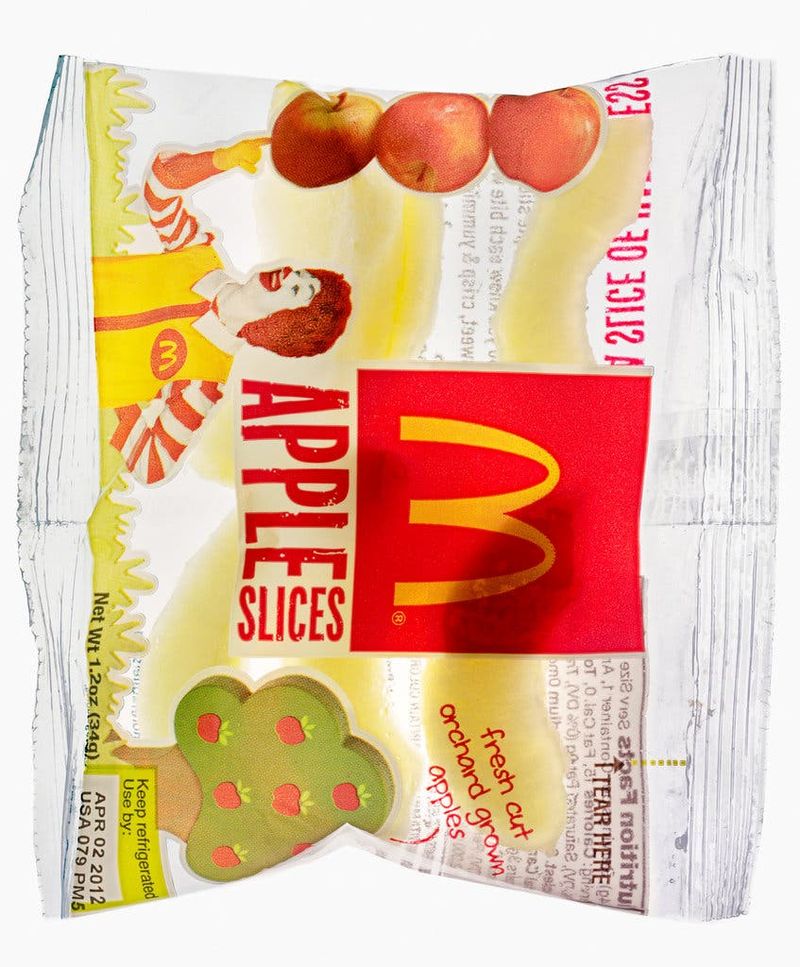
In 2010, McDonald’s faced a significant hurdle with their packaged apple slices. These convenient snacks, popular among health-conscious consumers, were recalled due to potential Listeria contamination. The apples, shipped by Missa Bay, were distributed across 36 states, affecting not only apple slices but also oatmeal and fruit-and-walnut snacks.
While no illnesses were reported, the recall underscored the challenges fast-food chains face in ensuring food safety across extensive supply networks. It also illustrated McDonald’s proactive approach to preventing potential health risks.
The incident served as a wake-up call for both the company and consumers, emphasizing the need for vigilance and rigorous quality checks in the food industry. This precautionary measure ultimately demonstrated McDonald’s dedication to maintaining high safety standards for its customers.
3. McDonald’s Hello Kitty Whistles in Happy Meals
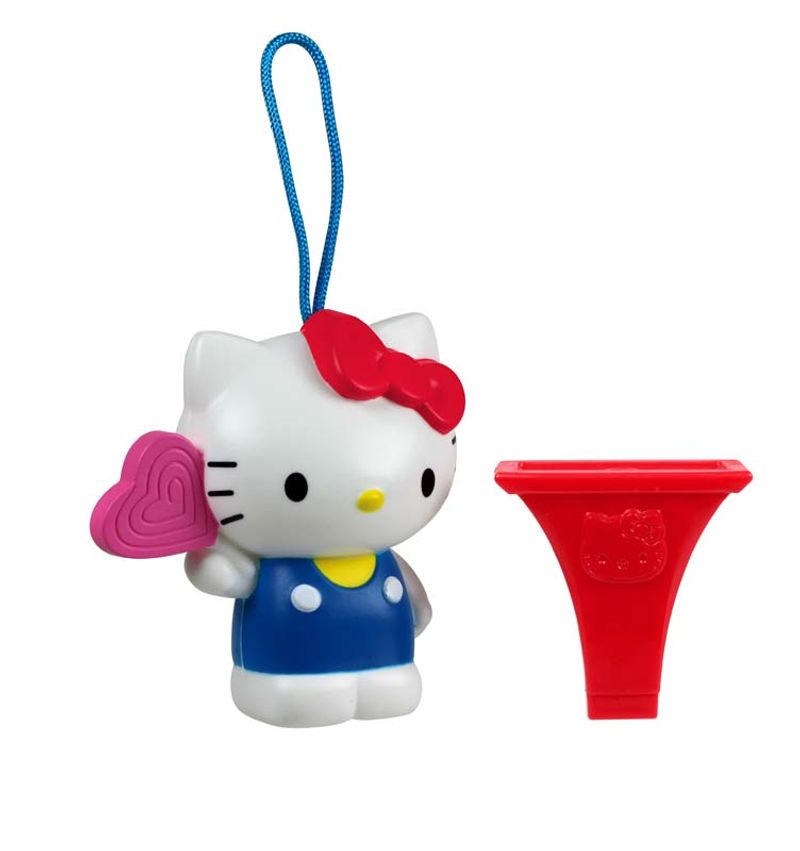
In 2014, McDonald’s Happy Meals included what seemed an innocuous toy: Hello Kitty whistles. However, this charming toy became a concern when it turned into a choking hazard. About 1.6 million of these toys were recalled after reports surfaced of children inhaling small parts.
One reported incident even required medical attention, raising alarms among parents and safety advocates. The recall was a crucial step to prevent further incidents and demonstrated McDonald’s responsiveness to potential safety threats.
This episode highlighted the unpredictable nature of product safety challenges in the world of fast-food promotions. It emphasized the need for rigorous testing and evaluation of even the simplest toy items, especially those meant for children.
4. McDonald’s Fitness Tracker Toys
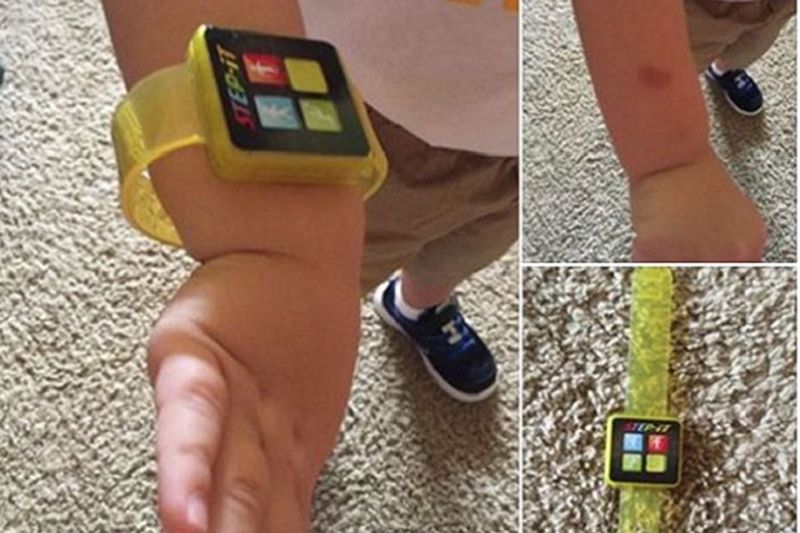
In 2016, McDonald’s introduced fitness tracker toys in their Happy Meals, aiming to promote physical activity among children. However, these wearable devices quickly became a source of concern. Reports of burns and blisters from the trackers’ contact with skin prompted a massive recall.
Approximately 32.6 million units were pulled from the market, illustrating the magnitude of the issue. McDonald’s faced criticism and scrutiny during this period but responded with swift action to ensure customer safety.
The incident highlighted the potential hazards of integrating technology into children’s toys without thorough testing. It also underscored the importance of balancing innovation with safety, especially in products aimed at young audiences.
5. McDonald’s Chicken McBites (New Zealand/Japan)
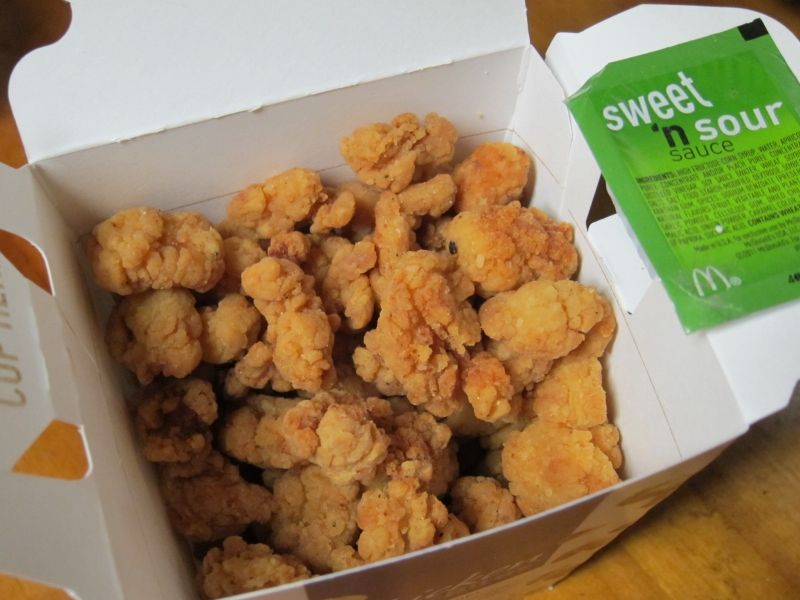
In 2022, McDonald’s Chicken McBites faced scrutiny in New Zealand and Japan. These bite-sized chicken pieces were quickly pulled from menus following customer complaints of undercooked chicken. Although no illnesses were reported, the decision to remove the product was made out of an abundance of caution.
This incident emphasized the critical importance of cooking procedures and quality control in the fast-food industry. McDonald’s prioritization of customer safety was evident in their swift response to the issue.
The Chicken McBites episode served as a reminder of the importance of maintaining high standards and rigorous checks, especially with perishable items. It also highlighted the challenges global chains face in maintaining consistency across diverse markets.
6. Jack in the Box® Hamburgers (1992–93)

The Jack in the Box E. coli outbreak of 1992–93 remains one of the most notorious incidents in fast-food history. Undercooked beef patties led to a severe E. coli outbreak, resulting in 477 illnesses, 144 hospitalizations, and the tragic deaths of four children.
The crisis prompted a complete overhaul of Jack in the Box’s cooking procedures and supplier management. This painful chapter in the company’s history underscored the vital importance of food safety protocols and the devastating consequences of lapses.
The incident also spurred broader industry changes, raising awareness and standards for cooking temperatures and meat handling. It serves as a stark reminder of the potential risks associated with fast-food consumption and the need for constant vigilance in food preparation.
7. Chi-Chi’s Green Onions (Mexican Chain)
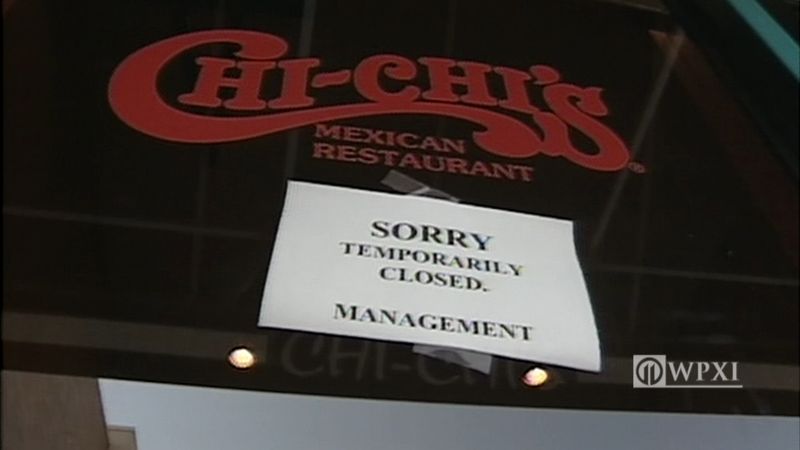
Chi-Chi’s Mexican restaurants faced a severe hepatitis A outbreak in 2003, traced back to contaminated green onions. The outbreak affected over 650 individuals and resulted in four deaths, marking one of the largest hepatitis outbreaks in U.S. history.
The incident led to the closure of over 50 locations and eventually contributed to the chain’s demise. This tragedy highlighted the risks of contaminated produce and the importance of rigorous supply chain oversight.
Chi-Chi’s experience underscores the potential dangers of foodborne illnesses and the far-reaching impact on both public health and business operations. It serves as a cautionary tale for the fast-food industry, emphasizing the need for stringent safety standards and practices.
8. Wendy’s Lettuce (2022)
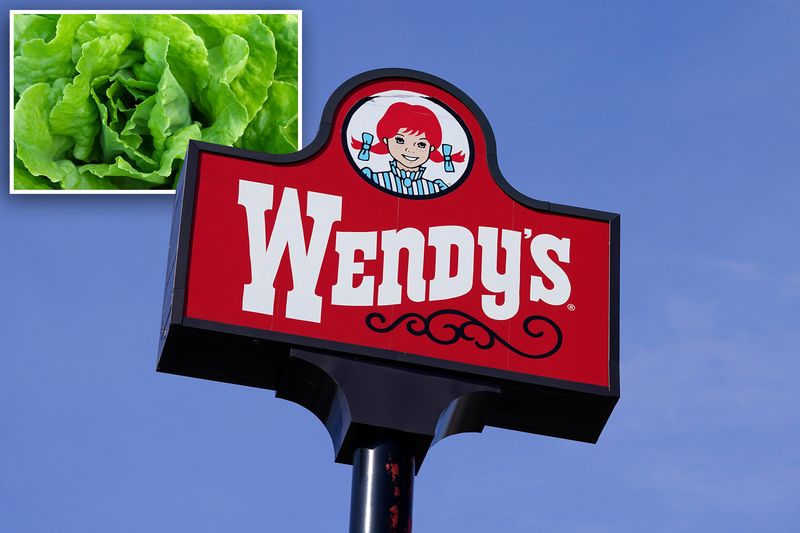
In 2022, Wendy’s temporarily removed lettuce from their menu nationwide in response to a multi-state E. coli outbreak. The outbreak sickened 109 individuals across six states, with 52 requiring hospitalization.
Despite no single food source being definitively confirmed, the cautious decision to pull lettuce highlighted the importance of preventive measures in ensuring consumer safety. Wendy’s swift action demonstrated their commitment to maintaining high safety standards.
The incident underscored the complexities and challenges of tracing foodborne illnesses in the fast-food supply chain. It also served as a reminder of the need for robust safety protocols and vigilance in food handling and preparation.
9. McDonald’s Shrek-themed Drinking Glasses
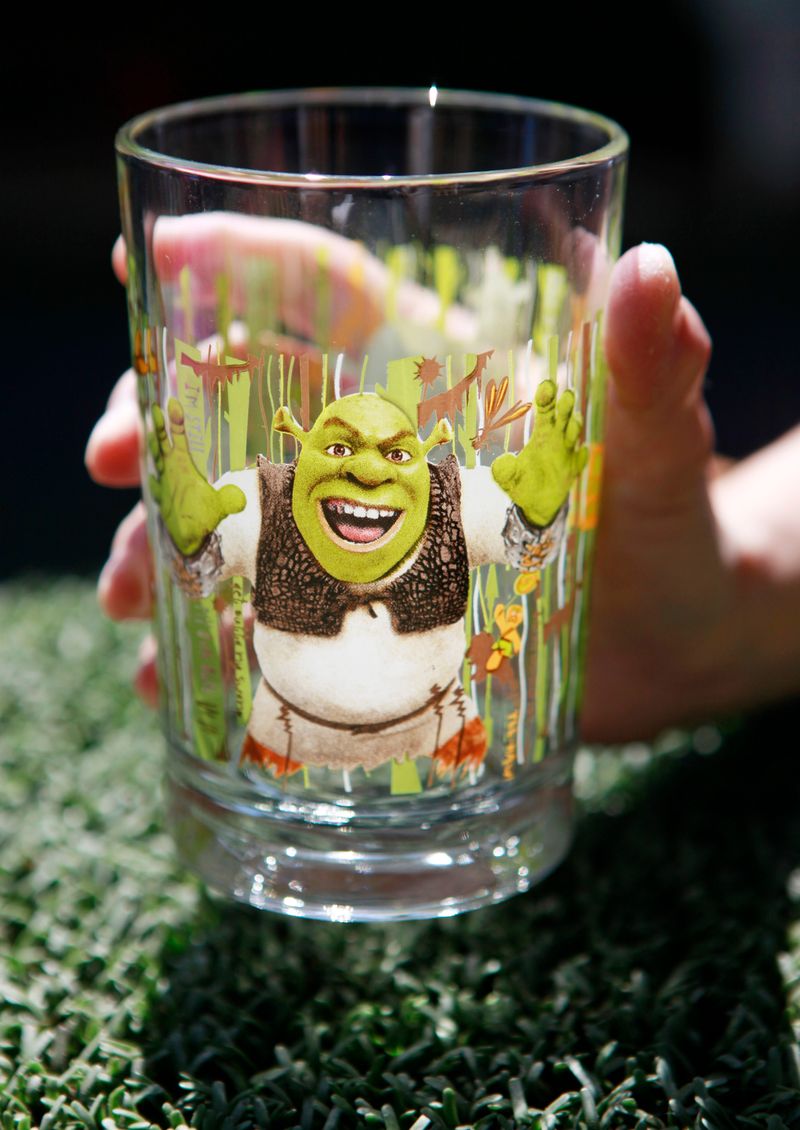
In a colorful twist of events, McDonald’s Shrek-themed drinking glasses captured public attention in 2010. These promotional items, intended to celebrate the beloved animated character, were recalled in staggering numbers – twelve million glasses, to be exact. The culprit? Cadmium.
Cadmium, a toxic metal found in the paint used on these glasses, posed a potential poisoning risk, especially to young fans. The recall was a massive endeavor, illustrating the gravity of seemingly innocuous merchandise harboring hidden dangers.
This incident not only highlighted the importance of safe manufacturing practices but also served as a cautionary tale for companies engaging in promotional tie-ins. McDonald’s swift action in recalling the glasses underscored their commitment to consumer safety, albeit amidst an unexpected public relations challenge.
10. Chipotle Burrito with Metal Bracket (2025)
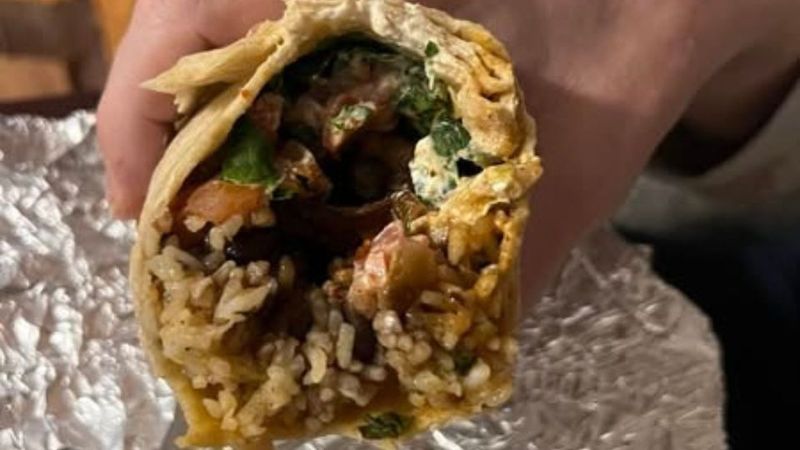
A 2025 incident at Chipotle sparked public outrage when a customer discovered a metal bracket inside their burrito. The discovery quickly went viral on social media, prompting calls for improved quality control measures at Chipotle.
The incident raised questions about food safety and the integrity of Chipotle’s preparation processes. While no injuries were reported, the potential dangers of such foreign objects in food were evident.
Chipotle responded by reiterating their commitment to customer safety and implementing additional quality checks. This episode highlighted the importance of meticulous oversight in food preparation and the potential repercussions of lapses in quality control.
11. Starbucks Chicken Maple Butter & Egg Sandwich
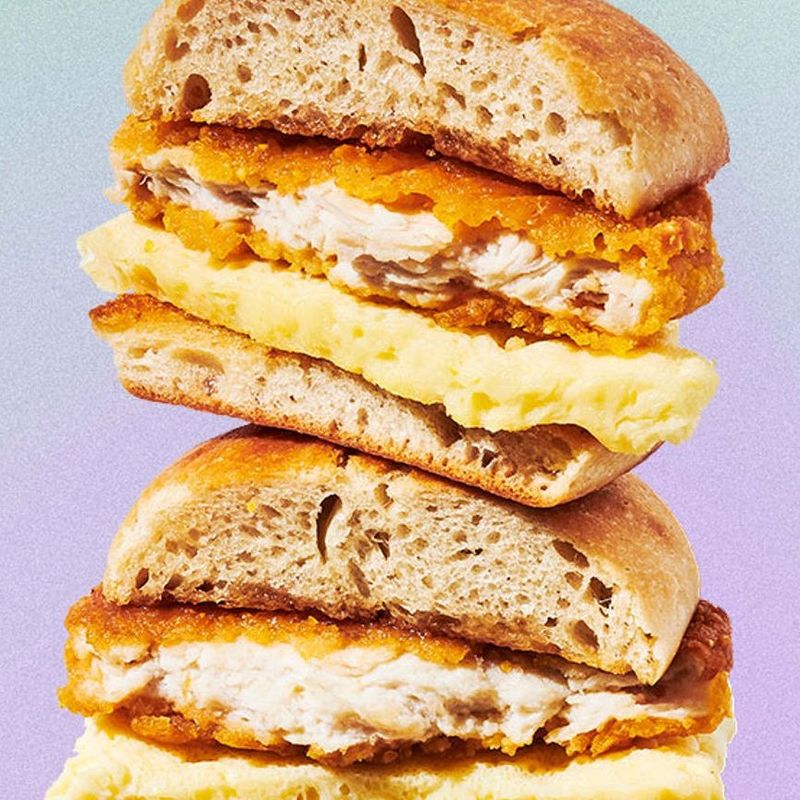
In 2022, Starbucks introduced a new breakfast item: the Chicken Maple Butter & Egg Sandwich. However, the delight was short-lived as widespread reports of gastrointestinal issues, including diarrhea and vomiting, surfaced shortly after its release.
Within just five days, Starbucks discontinued the sandwich, citing quality concerns despite denying direct responsibility for the illnesses. The incident became a talking point among consumers and food safety advocates.
This episode underscored the challenges faced when introducing new menu items and the critical importance of product testing and quality assurance. It also highlighted Starbucks’ quick response to potential health risks, prioritizing customer safety above all else.
12. Taco Bell-branded Taco Shells with StarLink Corn
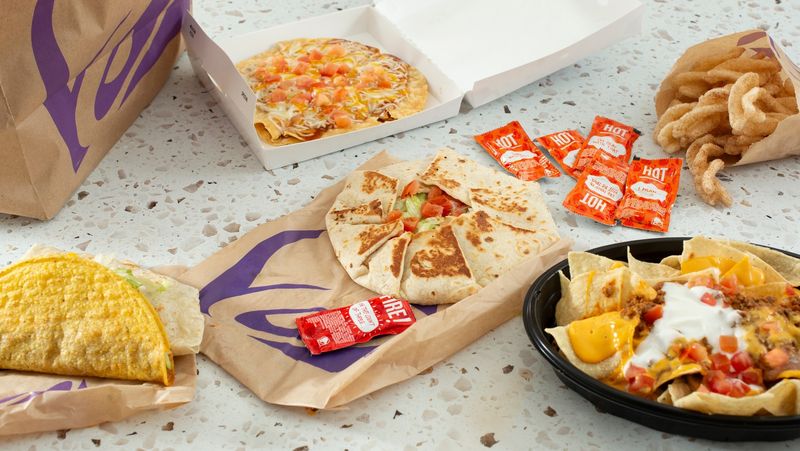
In 2000, Taco Bell found itself at the center of a GMO controversy involving taco shells made with StarLink corn. StarLink, genetically modified for pest resistance, was not approved for human consumption, leading to a mass recall of Taco Bell-branded shells.
The incident sparked a broader debate over GMOs in the food supply and resulted in a $60 million settlement for franchisees. This controversy highlighted the complexities of sourcing ingredients in the fast-food industry and the potential pitfalls of innovative agricultural practices.
The Taco Bell episode underscored the need for transparency and stringent oversight in ingredient sourcing, serving as a wake-up call for the entire industry.
13. Burger King Pokémon-style Toy Containers

Between 1999 and 2000, Burger King faced a serious safety issue with their Pokémon-style toy containers. Designed as Poké Balls, these containers created a vacuum over the mouth and nose, leading to suffocation incidents.
The most tragic involved the death of an infant, prompting a widespread recall of these promotional items. This incident illustrated the potential hazards of novelty toy designs and the need for rigorous safety evaluations.
Burger King’s swift response and recall efforts underscored their commitment to consumer safety, albeit in the wake of a heartbreaking tragedy. The episode served as a stark reminder of the critical importance of safety considerations in promotional items for children.
14. Subway Tuna Sandwiches
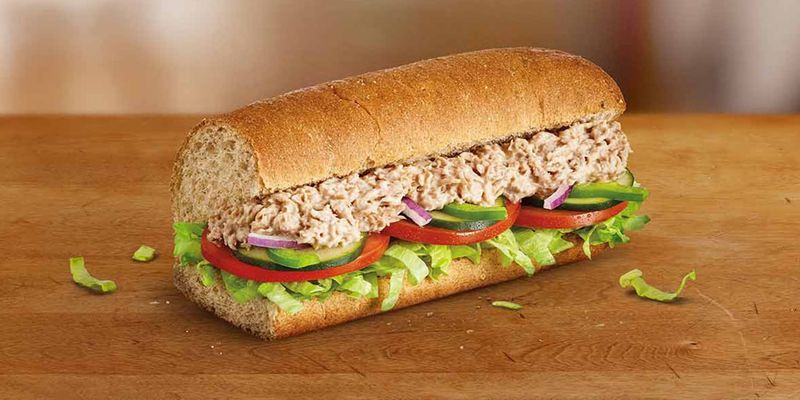
A 2021 lawsuit thrust Subway’s tuna sandwiches into the spotlight, alleging that the product was a concoction of unspecified ingredients rather than real tuna. The controversy sparked widespread debate and media attention, although Subway maintained that their sandwiches contained genuine tuna.
This legal challenge highlighted the complexities of food labeling and transparency, pressing fast-food chains to ensure accuracy in their ingredient listings. It also emphasized the potential reputational risks associated with consumer doubts about product authenticity.
Subway’s experience served as a reminder of the importance of clear communication and trust-building with consumers, particularly in an industry where transparency is paramount.
15. Subway Chicken Formulation (Canada)
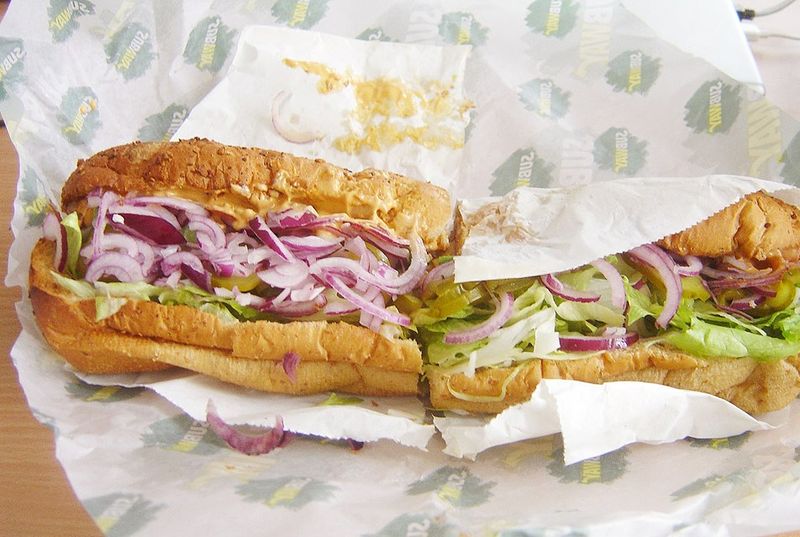
In 2017, Subway Canada faced scrutiny over their chicken formulation. Lab tests suggested that nearly 50% of the DNA in their chicken items was soy, far exceeding the claims made in their ingredient lists.
Subway Canada disputed the findings and launched a comprehensive review of their suppliers to address the concerns. The incident prompted discussions about product labeling accuracy and transparency in the fast-food industry.
This episode underscored the challenges of maintaining consistent quality and transparency across international markets, highlighting the need for rigorous supplier evaluations and consumer trust.
16. Subway Azodicarbonamide-conditioned Bread
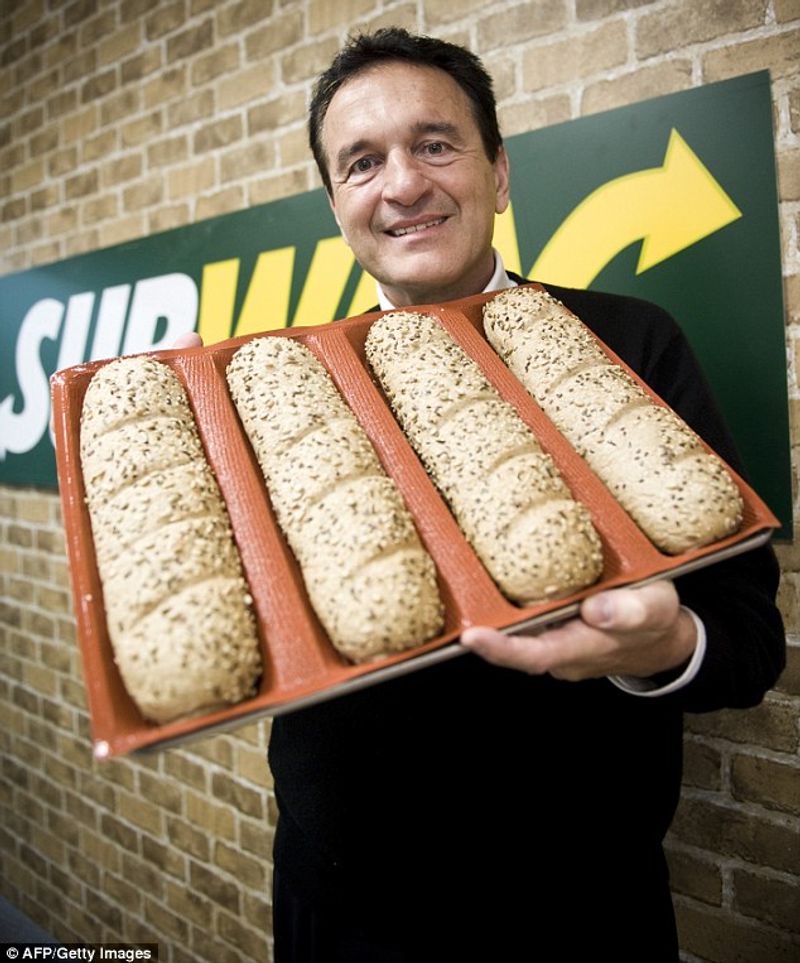
In 2014, Subway found itself in the crosshairs of public scrutiny after it was revealed that their bread contained azodicarbonamide, a chemical also used in yoga mats. Activism and consumer backlash led to the removal of the ingredient from their bread formulation.
The controversy underscored the growing consumer demand for transparency and cleaner ingredients in fast-food products. Subway’s swift response to the criticism highlighted their willingness to adapt to changing consumer expectations.
This incident served as a turning point for the fast-food industry, emphasizing the importance of ingredient transparency and consumer engagement in product formulation.
17. Boar’s Head Liverwurst Deli Meat
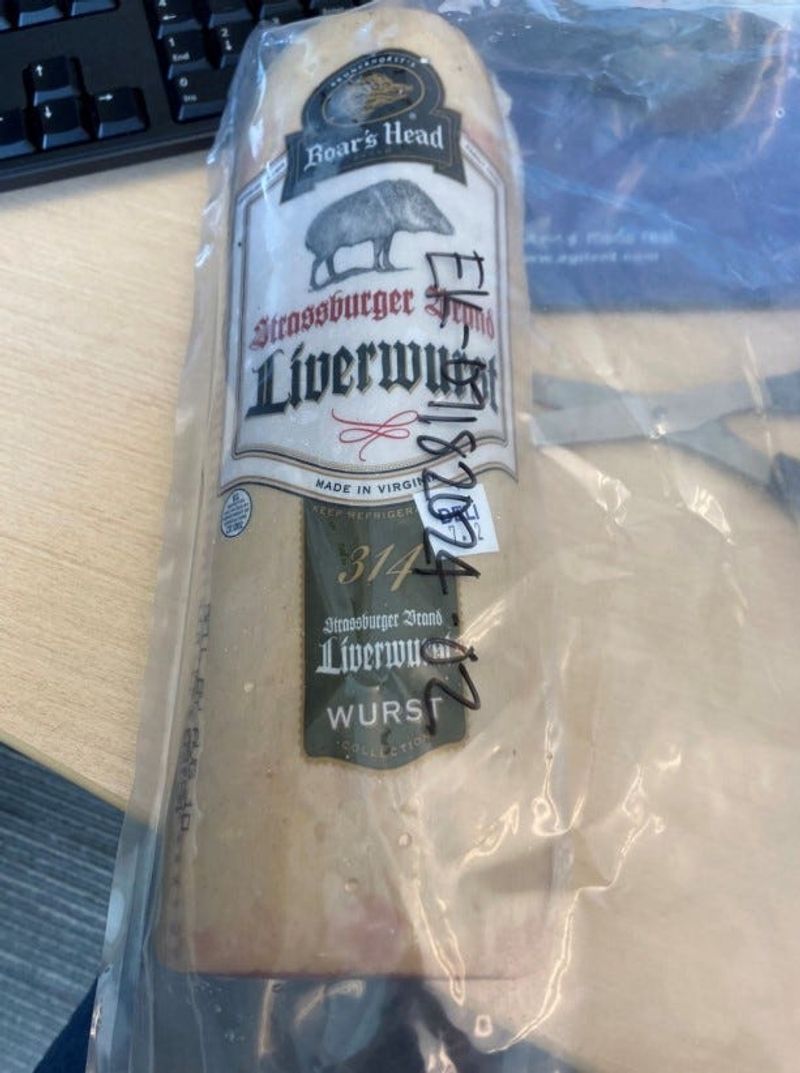
Boar’s Head, known for quality deli meats, faced a major recall in 2024 when 7 million pounds of liverwurst were contaminated with Listeria. The outbreak resulted in 59 hospitalizations and 10 deaths, prompting a shutdown of the Virginia plant.
The recall was a significant event, highlighting the potential dangers of Listeria contamination and the necessity for rigorous safety protocols in food production. Boar’s Head’s swift action underscored their commitment to consumer safety, despite the challenging circumstances.
This episode served as a stark reminder of the critical importance of food safety practices and the potential public health risks associated with lapses in quality control.
18. BrucePac Precooked Meats & Poultry
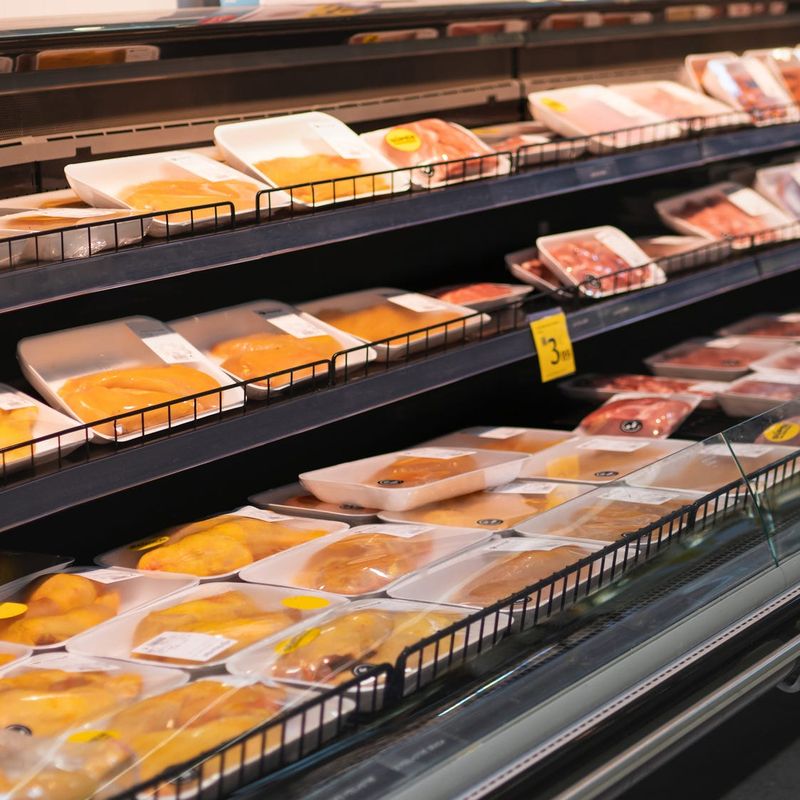
In October 2024, BrucePac faced a massive recall involving nearly 12 million pounds of precooked meats and poultry. The recall was initiated due to Listeria concerns, affecting products sold through school suppliers and fast-food chains.
The incident underscored the challenges of ensuring food safety in large-scale production and distribution networks. BrucePac’s recall efforts emphasized the company’s commitment to consumer health and safety.
This event highlighted the importance of rigorous testing and quality checks, particularly in products distributed on a wide scale. It also served as a reminder of the potential public health implications of foodborne pathogens and the need for constant vigilance in food production.
19. Dunkin’ Baked Goods & Coffee-rolls

In early 2025, Dunkin’ initiated a precautionary recall of their baked goods and coffee-rolls due to potential Listeria risks. Although no direct positive testing was reported, the recall was a preventive measure to ensure consumer safety.
The recall included various pastries sold under both chain and store brands, emphasizing Dunkin’s commitment to maintaining high safety standards. The incident demonstrated the importance of precautionary actions in the face of potential health threats.
This proactive approach highlighted Dunkin’s dedication to consumer well-being and underscored the need for vigilance in food safety protocols at all stages of production and distribution.
20. Frozen Waffles (multiple brands including Kodiak, Great Value)
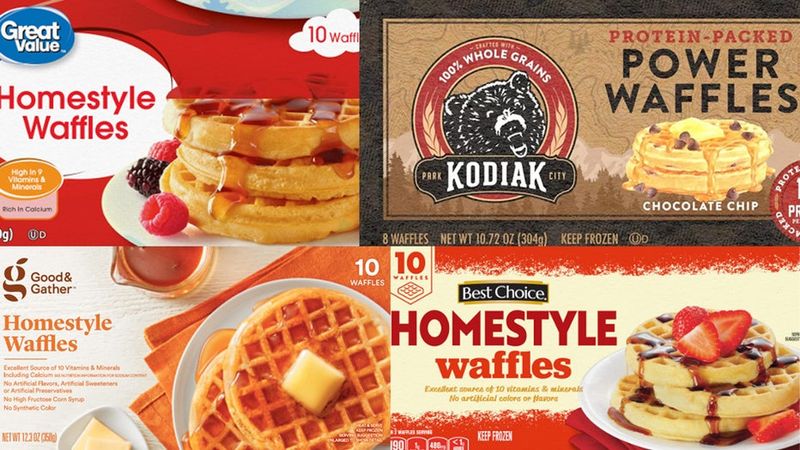
In October 2024, a major recall affected frozen waffles from several brands, including Kodiak and Great Value. The recall was initiated after the detection of Listeria in frozen waffles sold nationally.
The incident underscored the potential risks associated with frozen food products and the importance of stringent quality checks. The recall affected chain-supplied breakfasts and retail items, illustrating the widespread impact of such contamination.
This episode served as a reminder of the critical need for rigorous safety protocols and constant vigilance in the food industry, particularly for products with extensive distribution networks.

